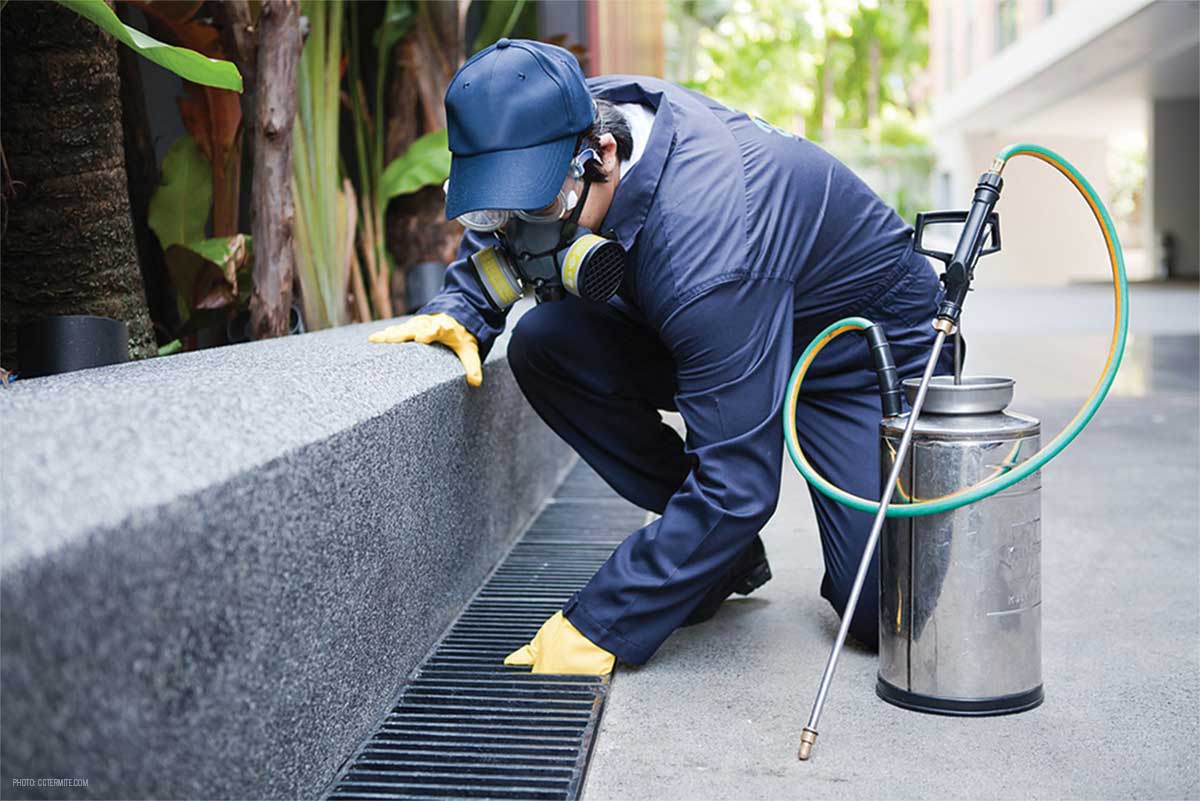Economical Pest Control Auckland Professionals: Maintain Your Property Safe
Wiki Article
Comprehending Various Kinds Of Bug Control Techniques and Their Efficiency
When considering pest control methods, it is crucial to recognize the diverse methods available and their differing levels of efficiency. By exploring the subtleties of these pest control strategies, a thorough understanding of just how to address pest problems can be created.Chemical Insect Control Methods
Chemical insect control techniques play a critical duty in effectively handling and removing pest invasions in various atmospheres. These techniques entail the use of chemical substances to get rid of or deter bugs such as insects, weeds, and rodents. Among the essential benefits of chemical parasite control is its capacity to provide fast and targeted services to pest troubles. By utilizing details chemicals that are designed to target particular bugs, this method can assist avoid damage to plants, frameworks, and human wellness.However, it is vital to take into consideration the possible dangers and downsides connected with chemical bug control approaches. Overreliance on chemicals can bring about the growth of pesticide resistance in pests, making them harder to regulate over time. Additionally, the usage of particular chemicals can have harmful impacts on non-target organisms, the environment, and human health and wellness otherwise used correctly.

Organic Pest Control Techniques
Making use of all-natural predators and virus to take care of parasite populations properly, biological parasite control methods provide a environmentally friendly and lasting method to pest management. By promoting the activity or presenting of microorganisms that naturally exploit or contaminate parasites, such as ladybugs for aphid control or specific germs for caterpillar infestations, biological control can help preserve parasite populaces at workable levels without the need for synthetic chemicals. This approach is especially useful for chemical-free farming techniques, as it prevents making use of potentially dangerous materials while maintaining crop health and wellness.
Physical Parasite Control Methods
While organic insect control methods concentrate on taking advantage of natural killers and pathogens, physical parasite control techniques utilize mechanical and physical obstacles to handle bug populaces. These techniques are often taken into consideration eco-friendly as they lessen making use of chemicals. Physical insect control consists of methods such as trapping, making use of barriers like internet or screens, and physically getting rid of bugs from the area.Traps are commonly utilized in physical pest control to capture and eliminate pests like pests and rodents. These traps can be baited with food or pheromones to draw in the bugs, leading them to a had location where they can be quickly thrown away. An additional physical method is making use of barriers such as nets, screens, or fences to protect against pests from going into or infesting particular locations. For instance, installing fine mesh websites screens on windows can aid shut out insects and flies.
Natural Insect Control Techniques
Integrating plant-based repellents and natural killers is a key strategy in carrying out efficient natural insect control techniques. By urging the visibility of beneficial insects like ladybugs, lacewings, or predatory mites, gardeners can naturally regulate pest populaces. These killers eat common garden parasites such as caterpillars, mites, and aphids, assisting to keep a balanced ecosystem without the requirement for chemical interventions.
In addition, implementing social methods such as crop rotation, buddy planting, and maintaining appropriate plant health and wellness can also boost the performance of natural pest control methods. These techniques not just help in protecting against parasite invasions however likewise promote biodiversity and general ecosystem durability. By integrating these natural methods, individuals can effectively take care of bugs while lessening environmental influence.
Integrated Insect Monitoring (IPM) Method
Executing an Integrated Parasite Management (IPM) strategy is important for effectively managing parasite populations while minimizing reliance on chemical pesticides. IPM is a lasting and extensive method that incorporates various insect control techniques to attain lasting remedies. This technique concentrates on avoidance, surveillance, and control to deal with pest concerns in an ecologically pleasant fashion.IPM integrates biological, cultural, physical, and mechanical techniques with the minimal and critical use pesticides when necessary. By highlighting positive steps such as environment alteration, biological control, and exemption, IPM aims to minimize parasite populations and their influence on the ecological community. Routine monitoring is important in IPM to evaluate bug degrees properly and establish the most appropriate control methods.
One of the crucial advantages of IPM is its ability to minimize the dangers related to too much pesticide usage, such as environmental contamination and damage to non-target microorganisms. In addition, IPM advertises a much more holistic approach to pest management by considering the general ecosystem characteristics. In general, the IPM approach uses a reliable and sustainable service for bug control official website while advertising environmental responsibility.
Verdict
In verdict, understanding the different types of bug control approaches and their effectiveness is important in properly handling bug problems. Integrated Parasite Management (IPM) approach, which integrates various approaches for sustainable pest control, is increasingly being identified as a official website alternative and eco friendly option.Chemical insect control methods play an essential role in properly handling and eradicating pest invasions in various settings.Using all-natural predators and microorganisms to manage pest populations effectively, biological parasite control methods use a lasting and environmentally friendly technique to pest management. By advertising the activity or presenting of microorganisms that naturally prey on or contaminate parasites, such as ladybugs for aphid control or specific bacteria for caterpillar infestations, biological control can aid preserve insect populaces at convenient levels without the need for artificial chemicals.While biological pest control techniques concentrate on using natural killers and pathogens, physical bug control techniques utilize physical and mechanical obstacles to manage parasite populations. Integrated Pest Monitoring (IPM) method, which combines different methods for lasting insect control, is significantly being acknowledged as a ecologically pleasant and alternative option.
Report this wiki page